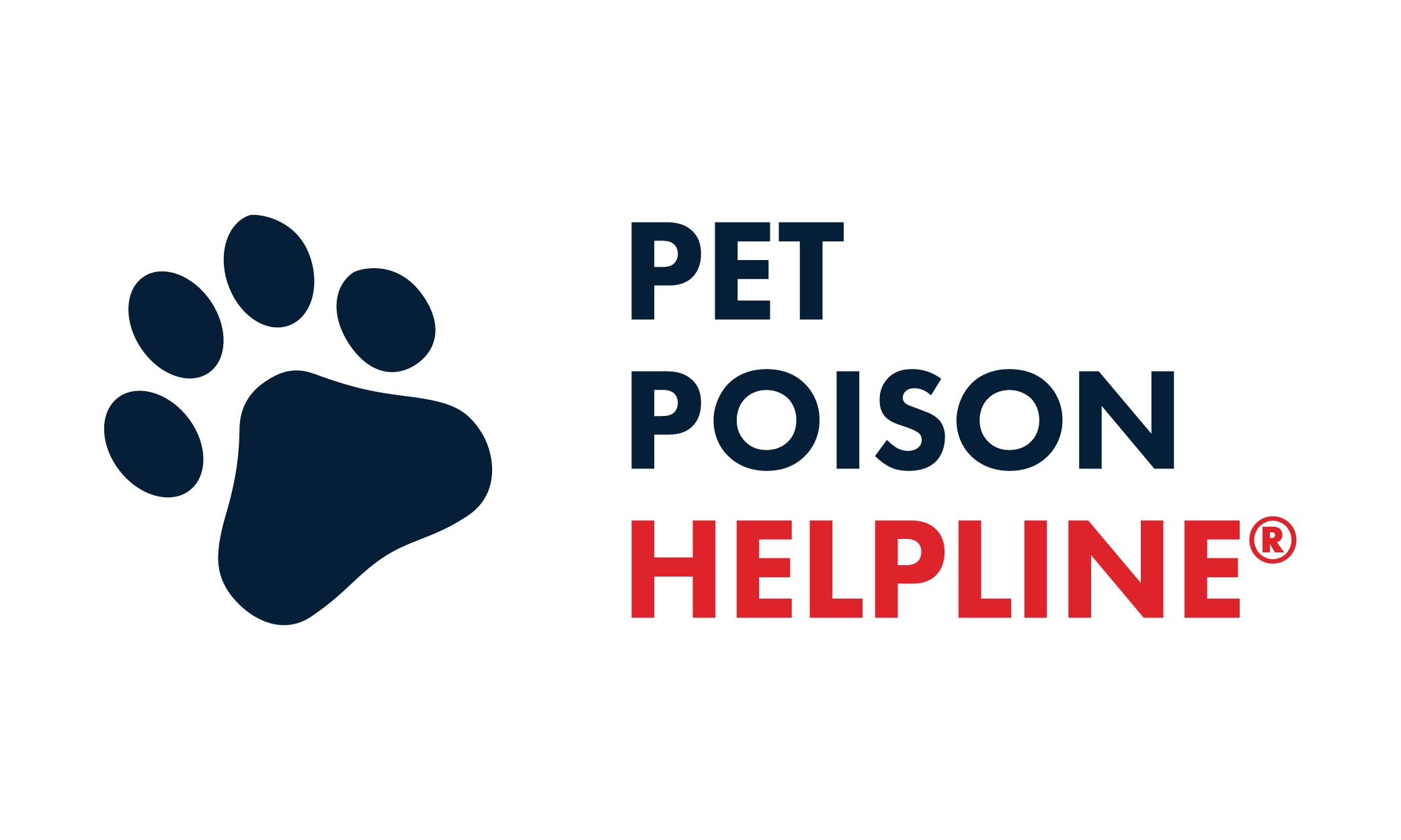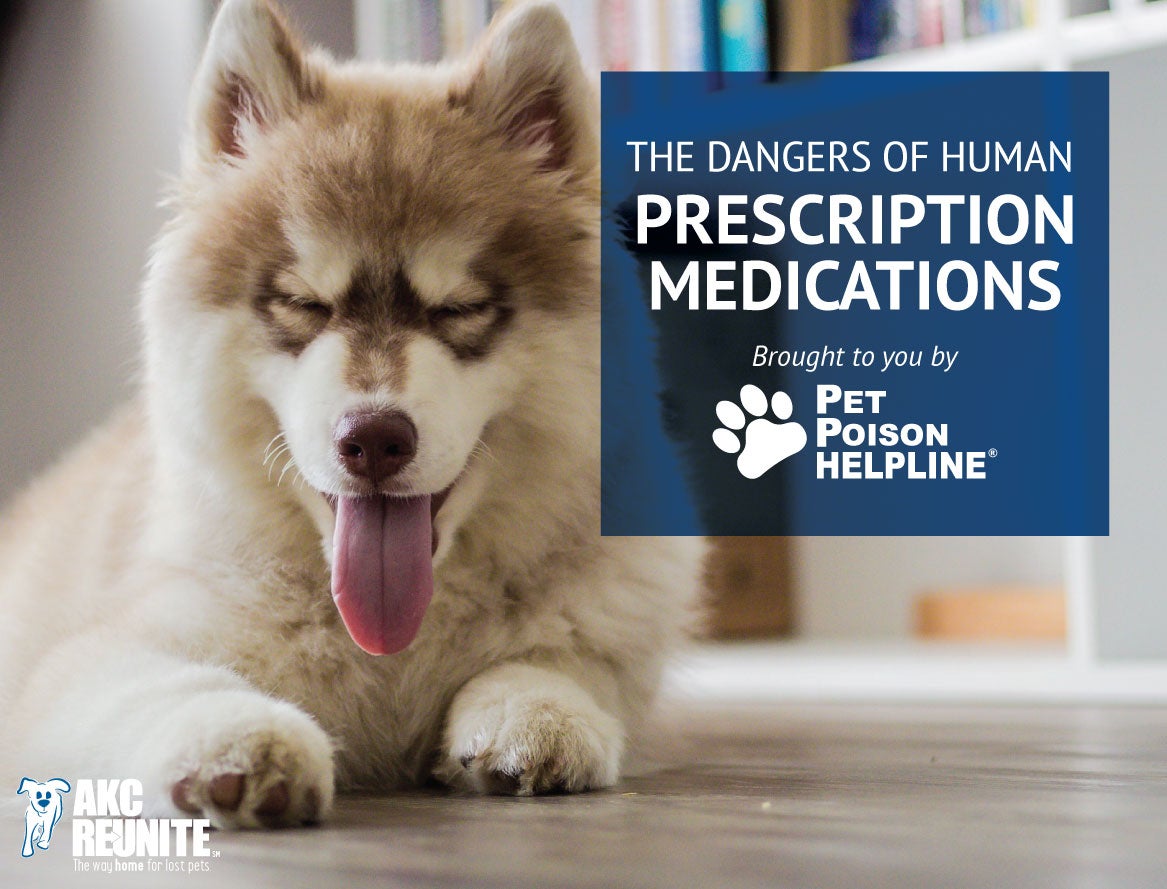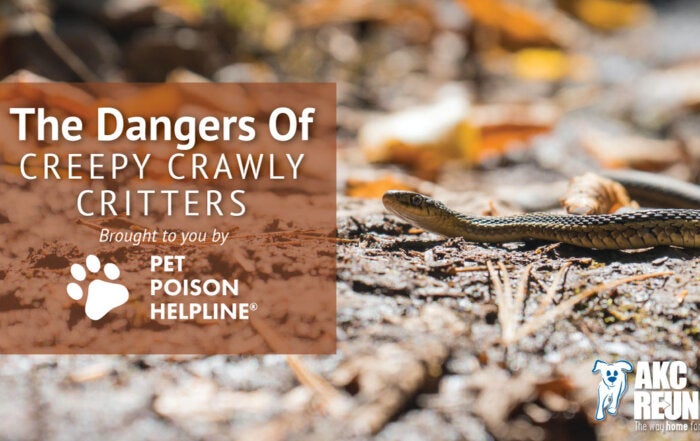Did you know 50% of Pet Poison Helpline calls are from pets ingesting human medications? Pets metabolize medications very differently from people. Even seemingly benign over-the-counter or herbal medications may cause serious poisoning in pets.
Always keep medications safely out of reach and never administer a medication to a pet without first consulting your veterinarian:
- Never leave loose pills in a plastic Ziploc® bag – the bags are too easy to chew into. Make sure visiting house guests do the same, keeping their medications high up or out of reach.
- If you place your medication in a weekly pill container, make sure to store the container in a cabinet out of reach of your pets. Some pets may consider the pill container a plastic chew toy.
- Never store your medications near your pet’s medications – Pet Poison Helpline frequently receives calls from concerned pet owners who inadvertently give their own medication to their pet.
- Hang-up your purse. Inquisitive pets will explore the contents of your bag and simply by placing your purse up and out of reach can help to avoid exposure to any potentially dangerous medication(s).
Top 10 Human Medications Most Frequently Ingested by Pets:
- NSAIDs (e.g. Advil, Aleve and Motrin)
Just one or two pills can cause serious harm to a pet. Dogs, cats, birds and other small mammals (ferrets, gerbils and hamsters) may develop serious stomach and intestinal ulcers as well as kidney failure.
- Acetaminophen (e.g. Tylenol)
One regular strength tablet of acetaminophen may cause damage to a cat’s red blood cells, limiting their ability to carry oxygen. In dogs, acetaminophen leads to liver failure and, in large doses, red blood cell damage.
- Antidepressants (e.g. Effexor, Cymbalta, Prozac, Lexapro)
While these antidepressant drugs are occasionally used in pets, overdoses can lead to serious neurological problems such as sedation, incoordination, tremors and seizures. Some antidepressants also have a stimulant effect leading to a dangerously elevated heart rate, blood pressure and body temperature.
- ADD/ADHD medications (e.g. Concerta, Adderall, Ritalin)
Even minimal ingestions of ADD and ADHD medications by pets can cause life-threatening tremors, seizures, elevated body temperatures and heart problems.
- Benzodiazepines and sleep aids (e.g. Xanax, Klonopin, Ambien, Lunesta)
About half of the dogs who ingest sleep aids become agitated instead of sedate. In addition, these drugs may cause severe lethargy, incoordination (including walking “drunk”), and slowed breathing in pets. In cats, some forms of benzodiazepines can cause liver failure when ingested.
- Birth control (e.g. estrogen, estradiol, progesterone)
Birth control pills often come in packages that dogs find irresistible. Thankfully, small ingestions of these medications typically do not cause trouble. However, large ingestions of estrogen and estradiol can cause bone marrow suppression, particularly in birds. Additionally, female pets that are intact (not spayed), are at an increased risk of side effects from estrogen poisoning.
- ACE Inhibitors (e.g. Zestril, Altace)
Overdoses can cause low blood pressure, dizziness and weakness, but this category of medication is typically quite safe. Pets ingesting small amounts of this medication can potentially be monitored at home, unless they have kidney failure or heart disease. All heart medications should be kept out of reach of pets.
- Beta-blockers (e.g. Tenormin, Toprol, Coreg)
Small ingestions of beta-blockers may cause serious poisoning in pets. Overdoses can cause life-threatening decreases in blood pressure and a very slow heart rate.
- Thyroid hormones (e.g. Armour desiccated thyroid, Synthroid)
Interestingly, the dose of thyroid hormone needed to treat dogs is much higher than a person’s dose. Therefore, if dogs accidentally get into thyroid hormones at home, it rarely results in problems. However, large acute overdoses in cats and dogs can cause muscle tremors, nervousness, panting, a rapid heart rate and aggression.
- Cholesterol lowering agents (e.g. Lipitor, Zocor, Crestor)
Ingesting “statins” only causes mild vomiting or diarrhea. Serious side effects from these drugs come with long-term use, not one-time ingestions.

Pet Poison Helpline is a 24/7 animal poison control service available for pet owners and veterinary professionals who require assistance with treating a potentially poisoned pet. Pet Poison Helpline has the ability to help every poisoned pet, with all types of poisonings. Normally $85 per incident, with AKC Reunite you can plan ahead and subscribe your pet to this life-saving service for only $15 for the lifetime of your pet.
WHAT WILL YOUR PET GET INTO NEXT?
HOW THE PET POISON HELPLINE WORKS
You think your pet has gotten into something potentially toxic. Don't delay, call AKC Reunite at 800-252-7894 for help!
Provide your pet's microchip ID or AKC Reunite collar tag ID. You will be transferred to the Pet Poison Helpline once your Pet Poison Helpline activation is confirmed.
Pet Poison Helpline experts will create a detailed report reviewed by veterinarians, licensed veterinary technicians and other experts.
In your pet's time of need, you are provided recommendations to treat the problem yourself or directed to get immediate professional attention.
RELATED POSTS
Road Tripping with your Pet
Planning a road trip with your pet? Prepare for a pet-friendly journey with your BestPetEver!
The Danger of Creepy Crawly Critters
Brought to you by Pet Poison Helpline & AKC Reunite Enjoying the outdoors with your pet can be a fantastic bonding experience and a great way to keep them active. However, many pets are [...]
Halloween Toxins
Trick or Treat! As you prepare your home for the holiday’s festivities, remember to keep in mind the dangers your pet could face — some may even surprise you! Avoid these common seasonal dangers so your pet can have a Happy HOWL-O-WEEN!





